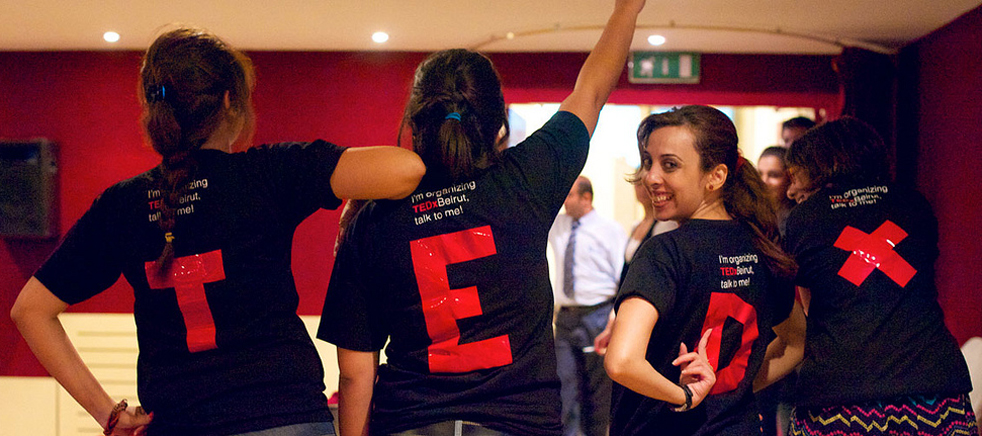
Organizers show off their shirts at a TEDxBeirutSalon. Photo: Courtesy of TEDxBeirut
In 2008, Patricia Zougheib was at work in Beirut, Lebanon, when she came across a video of Jill Bolte Taylor describing her own stroke. She was awed, and Googled the three red letters she noticed in the background—T-E-D. “I started watching one talk after the other,” she says, “and I got hooked, big-time.”
For a while, Zougheib kept her TED habit her own special secret, watching talks alone at her advertising job. “But then I thought, after one year, ‘No, this is too good not to be shared.’” She introduced her husband to TED, and the two decided to invite some friends over to their house to watch and discuss talks.
TEDxSKE, the first TEDx event in Lebanon, started as a gathering of six friends — but it has led to a boom of TEDx events in the country, most of them helmed by women. No one can explain why women are drawn to TEDx organizing here—but regardless of the reason, they are spreading ideas to attendees of both genders.
Zougheib knew TEDxSKE had reached a turning point when strangers started asking to join in. “It became an open house,” she says. “Of course, a limited open house, because our house can only fit 20 to 25 persons max.” Two years after it started, the weekly salon was still thriving. “I started saying, this salon is kind of changing our lives. Everyone is being affected by this,” Zougheib says. “I thought, if this small salon was having this much effect, we should do the big event with our speakers.” She gathered a team of regular TEDxSKE attendees to lead another, bigger salon and to launch the main event TEDxBeirut.
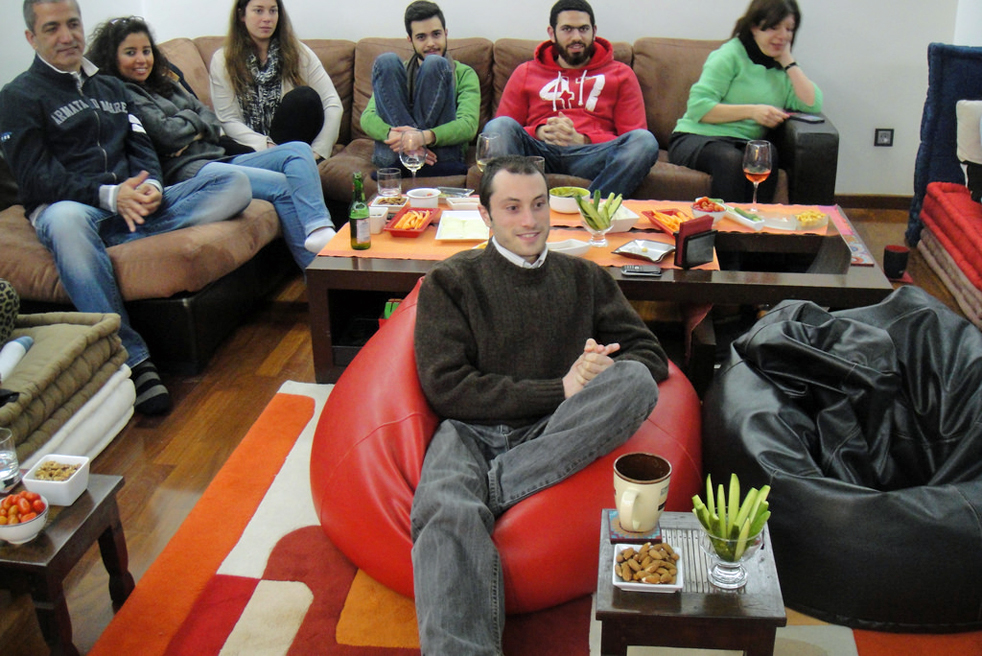
The scene at TEDxSKE, held in Patricia Zougheib’s home. Photo: Courtesy of TEDxSKE
At the same time, Reine Azzi, a teacher at Lebanese American University (LAU), was having her own TED moment. Scrolling through her Facebook feed, she came across one of Sir Ken Robinson’s talks, which an American friend had posted. “Because I’m a teacher, the title intrigued me, so I clicked,” she says. “And I fell in love with what he had to say.”
She watched all of Robinson’s talks and, the next day, approached her boss to ask about screening one of them as a lecture on campus. The event was small, but shortly after, someone introduced Azzi and Zougheib, who was still scouting locations for the inaugural TEDxBeirut salon. Azzi offered up the LAU campus, and the event drew 150 people.
Things snowballed. Azzi held the first TEDxLAU salon in 2012. Six salons and two main events later, “TEDxLAU events are always sold out. Always. It’s amazing,” Azzi says; the last salon, on mental health, sold out within 24 hours. “It’s as if students on campus were thirsty for events like these—events that are intellectual but at the same time humane … You don’t have a speaker who is just standing behind a table reading from a manuscript. You have a speaker who is sharing heart and soul with you.”
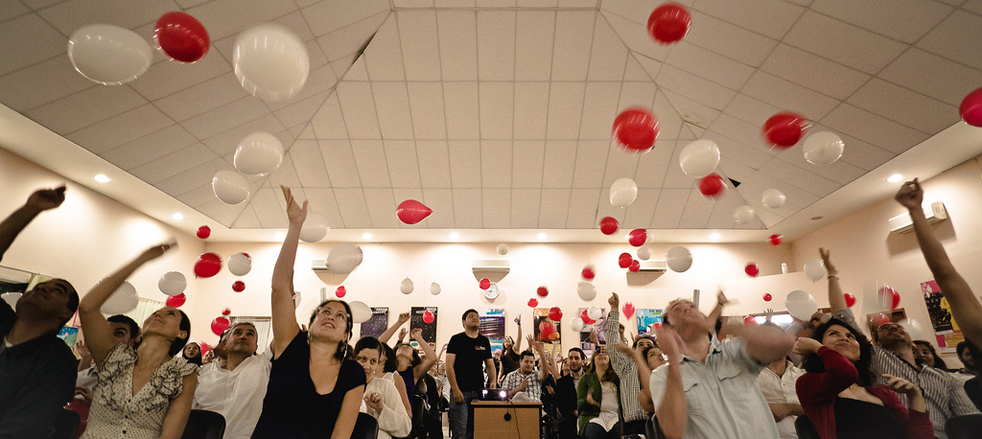
Balloons at a TEDxBeirutSalon. Photo: Nadim Kamel
TEDxBeirut, meanwhile, has held eight salons and two main events, which featured local speakers and drew 700, then 1,200, attendees. In fact, the organization grew so quickly that Zougheib quit her job and took 16 months to work solely on TEDxBeirut. “I loved it—it was the best 16 months of my life,” she says. Not sustainable, though (“neither for me nor my husband”), so she’s back at work and has passed TEDxBeirut off to a team of four co-leaders. But she is still actively spreading TEDx.
“Everyone started asking us, ‘Please come do your event at our university!’” Zougheib says. Instead of taking the event on the road, she encouraged people to get their own licenses. TEDx salons mushroomed across Lebanon; there are now about 10.
Natalia Geha, for one, attended TEDxBeirut a few years ago, and just held her first TEDxNDULouaize salon at Notre Dame University-Louaize in January, with musical performances in addition to talk screenings and discussions. “I think it’s interesting that TED is becoming so popular in Lebanon, because we really lack cultural events,” she says.
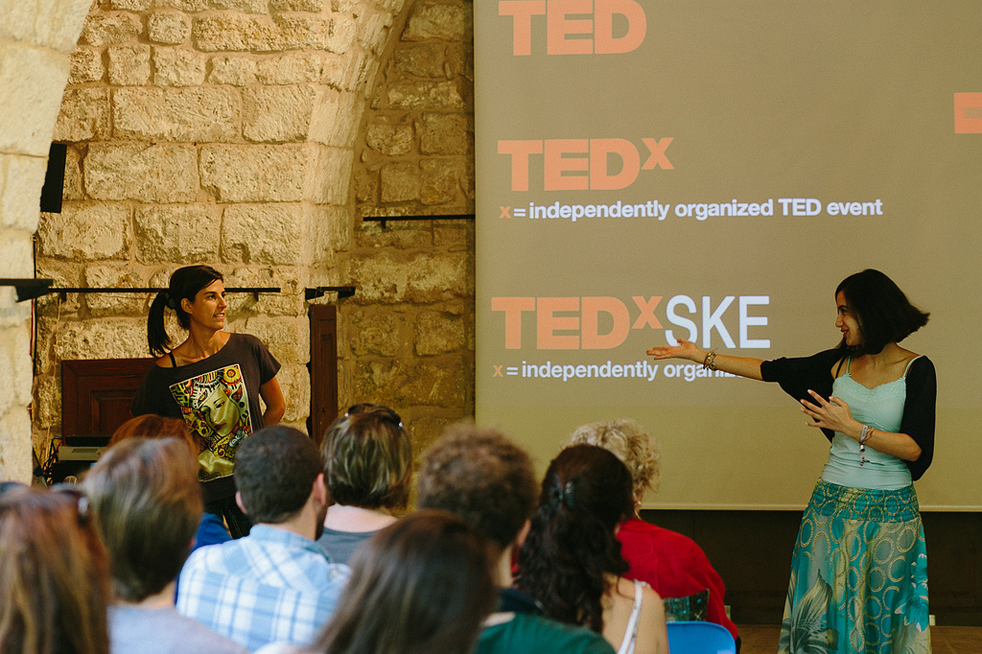
A TEDxSKE salon, held in a beautiful venue. Photo: Nadim Kamel
It’s a sentiment echoed by Zougheib almost verbatim. “The movement is spreading like no other movement I’ve seen, ever,” she says. “We didn’t have many cultural events happening here. There was a lack.”
Zougheib also points out that media—internationally, but within Lebanon, too—tend to focus on turmoil, to the exclusion of achievement. She wanted TEDxBeirut to be a platform for showing the inventiveness and creativity of her compatriots. “We all need nonpolitical platforms where we can express our ideas, talk about our inventions, say that young people are as lively as they are elsewhere,” she says. “We do have ideas, believe it or not. Even if we come from Lebanon.”
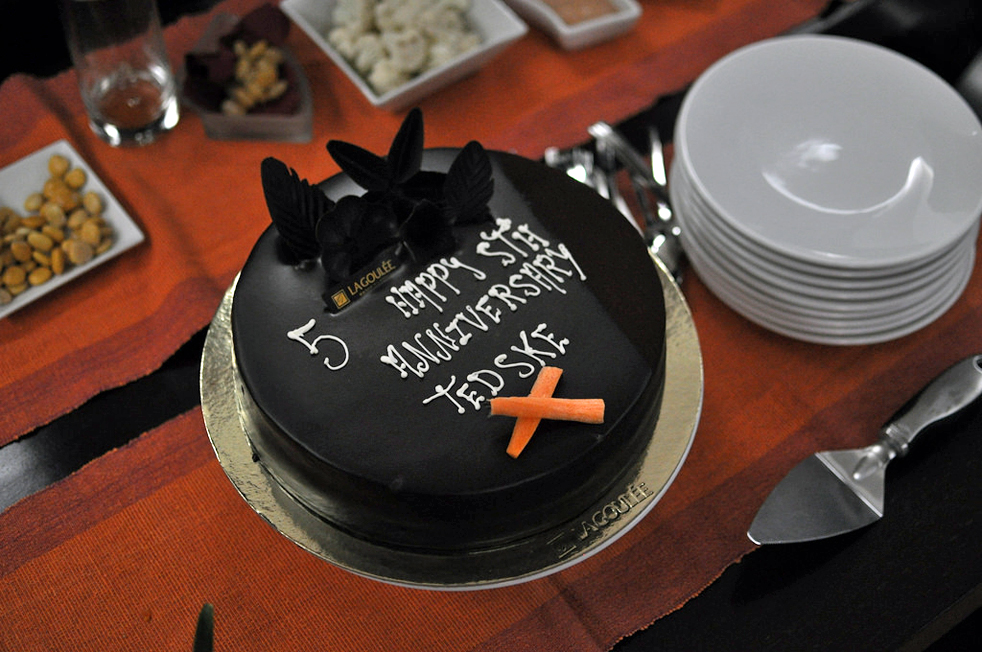
The cake at TEDxSKE’s 5th anniversary party. Photo: Patrick Abi Salloum
Comments (8)